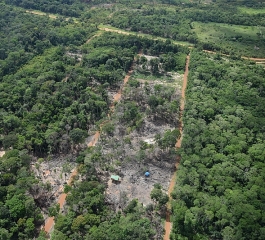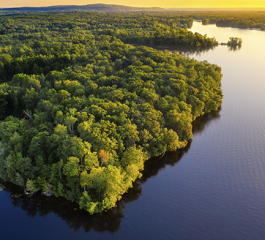Are you aware of the importance of preserving it? Or do you know what influences your loss process?
What is biodiversity?
Biodiversity encompasses the diversity of life in all existing ecosystems, from the deepest ocean to the highest mountain tops.
It is not just the number of existing organisms, but also includes the genetic variety and ecological roles played by different species.
Biodiversity is the variety of living organisms from all sources, including terrestrial, marine, and other aquatic ecosystems.
As well as the ecological complexes of which they are part. This definition encompasses diversity within species and ecosystems.
Biodiversity plays essential roles in ecological processes, promoting the health of the planet and contributing to human well-being.
It performs crucial activities such as plant pollination, air and water purification, pest control, soil formation, and climate regulation.
In addition, biodiversity directly benefits humans by providing food, medicine, building materials, as well as recreational and cultural opportunities.
Loss of biodiversity
Biodiversity is being lost globally, especially in the tropical regions of the planet.
This reduction in the variety of life has serious consequences, as it puts several other species at risk, since organisms do not exist in isolation.
The incessant quest for development and territorial expansion, driven by humans, is one of the main causes of biodiversity loss.
This behavior results in significant negative impacts on the environment.
Among the main processes that contribute to the reduction of biological diversity, the destruction of natural habitats stands out.
The excessive exploitation of animal and plant species, the introduction of exotic species, the increase in agricultural activity, pollution and climate change.
It is therefore essential to adopt measures to protect biodiversity and promote environmental conservation, ensuring the sustainability and balance of ecosystems for future generations.
Importance of preserving biodiversity
The preservation of all species in the world is a crucial responsibility to guarantee the balance of ecosystems.
The extinction of a species in a given region causes significant impacts on the ecosystem, as species interact with each other and with the environment in which they live.
One of the most well-known impacts occurs in the food chain of the affected ecosystem.
For example, the extinction of a herbivore can directly affect the plant population that serves as food for that animal, as well as the carnivorous organisms that depend on it as a food source.
Biodiversity plays an essential role in the environment, and its economic relevance is significant.
Animals, plants and various microorganisms are widely used in the manufacture of food, cosmetics and medicines, contributing to economic development.
In addition, biodiversity is valued for its genetic, social, scientific, educational, cultural, recreational and aesthetic aspects, as established by the “Convention on Biological Diversity”.
Preserving biodiversity is essential to protect nature and ensure benefits for present and future generations, ensuring a sustainable environment full of opportunities for humanity.
Conclusion
In conclusion, the article discusses biodiversity and explains that it is essential for the planet and, above all, for human well-being.
Its loss is the result of human actions, such as the search for development, territorial expansion.
In addition, factors such as habitat destruction, overexploitation of species, introduction of exotic species.
Intensive farming, pollution and climate change are equally responsible for the loss of biodiversity.
Preserving biodiversity is crucial for the balance of ecosystems and economic, social, scientific, cultural and aesthetic benefits on planet Earth.
Individual, governmental and international actions are considered necessary to conserve biodiversity and thus ensure a sustainable future for present and future generations.


